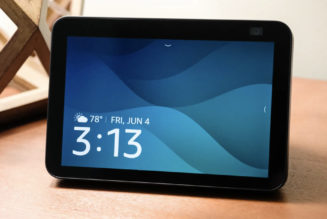Among the more functional differences between the two phones are their cameras. The Xiaomi 13 Pro features a total of three 50-megapixel rear cameras. The main camera uses the same 1-inch-type Sony IMX989 sensor found in the Xiaomi 12S Ultra, and its joined by a 50-megapixel telephoto, and a 50-megapixel ultrawide with support for macro photographs taken from as little as 5cm away. Meanwhile, the Xiaomi 13 uses a smaller 1/1.49-inch 50-megapixel sensor for its main camera, with a 12-megapixel ultrawide and 10-megapixel telephoto.
:format(webp)/cdn.vox-cdn.com/uploads/chorus_asset/file/24284812/swiper3_3.jpg)
Screens also differ. On the Xiaomi 13 Pro there’s a 6.73-inch 1440p display that curves round the sides of the device, while the Xiaomi 13’s is smaller at 6.36-inches, flat, and has a 1080p resolution. Both offer refresh rates of up to 120Hz, with up to 1,900 nits of peak brightness. The Xiaomi 13 Pro is available in white, black, light green, and light blue, while the standard 13 also offers gray and more colorful red, yellow, green, and blue options, GSMArena notes.
Finally, when it comes to power, the 13 Pro has a bigger 4,820mAh battery and faster charging speeds. Wired charging tops out at 120W, wireless charging 50W, and there’s also support for 10W of reverse wireless charging. The standard Xiaomi 13, meanwhile, maxes out at 67W for wired charging, though wireless and reverse wireless charging speeds remain the same.
Both phones feature an IP68 rating for dust and water resistance (meaning they should survive being fully submerged in shallow water), and run Xiaomi’s MIUI 14 software, which is based on Android 13.
Both phones have only been announced for the Chinese market for now, where they’ll ship on December 14th. But based on Xiaomi’s approach for previous phones like the Xiaomi 12, they’re likely to be released internationally (though not in the US) in the coming months. In China the Xiaomi 13 starts at ¥3,999 (around $573) for its base model with 8GB of RAM and 128GB of storage, while the 13 Pro starts at ¥4,999 (around $717).









